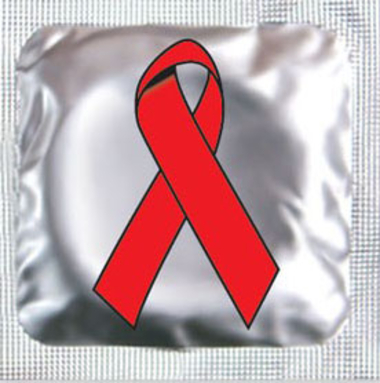It’s 2016: Ignorance is not bliss

by Mary Turner
HIV/AIDS Columnist
Enid. Stillwater. Midwest City. Moore. Imagine starting the New Year with one of these fine Oklahoma cities completely wiped off the map. Each city has a population of approximately 50,000 residents. That’s the number of individuals who become infected with HIV each year in the United States.
WTF! It’s 2016, and people are still not protecting themselves from HIV exposure. Are you serious?
I know that there are those who work in risky occupations, and who may be exposed because of workplace hazards. The police, paramedics, nurses and doctors, and other health related employees face risks from needle sticks and other exposure to contaminated blood products.
Most of these new cases, however, don’t come from those populations. They come from people like you who think “It won’t happen to me!”
Some of you continue to engage in unprotected sex and the consequence of that could be deadly. Ignorance is not bliss. Ignorance keeps you from knowing your HIV status. Ignorance prevents you from protecting yourself and the people you love.
If you enjoy sexual promiscuity, ignorance makes you risk your own well-being and that of all your partners and all of their partners. While it’s true that we all will die someday, it’s also true that there are better ways to live and die than with HIV.
First, there are the real costs associated with an HIV diagnosis. Treatments are available and they are much better than they once were, but they aren’t cheap. And if you don’t live in a major metropolitan area with somewhat adequate resources, you may not have the access to care that you need.
There also is the toll that HIV and the medications used to treat it takes on you. If you can afford your meds, they can certainly increase your life expectancy, and possibly your quality of life. But they also have side effects that may be equally hard to endure.
There is also the stigma of being HIV+, which may be more painful. Since it’s 2016, there are educational resources everywhere about this – www.cdc.gov, www.amfAR.org and the National Institutes of Health has an “Office of AIDS Research” at www.oar.nih.gov, just to name a few (If you don’t have access to a computer, visit your local library or HIV/AIDS resource center).
People knew very little three and a half decades ago, so they engaged in behaviors they didn’t know might jeopardize them. Today we know, and we have ways to be safer.
- Limit the number of partners with whom you have casual sex.
- Practice safer sex by always using latex condoms (If you don’t know how to use them effectively, ask a pharmacist or health care provider).
- Put on the condom at the beginning of making out. Waiting until it’s “time” will be too late.
- Get tested and request that your partner or partners get tested regularly.
- Do not share items such as needles, razors, toothbrushes, or other items that might pass blood or body fluids from person to person.
- If you experience an accidental needle stick, if your condom breaks, or if you are raped, go to the nearest emergency room as quickly as possible for Pre-Exposure Prophylaxis (PrEP) treatment. This will greatly reduce your chance of contracting HIV.
WTF should only be uttered at scenes from movies, bad calls at sporting events, or seeing your ex someone who makes you look over-the-top amazing.
It’s 2016. Live like it!
The Gayly - 1/04/2016 @ 4:36 p.m. CST





